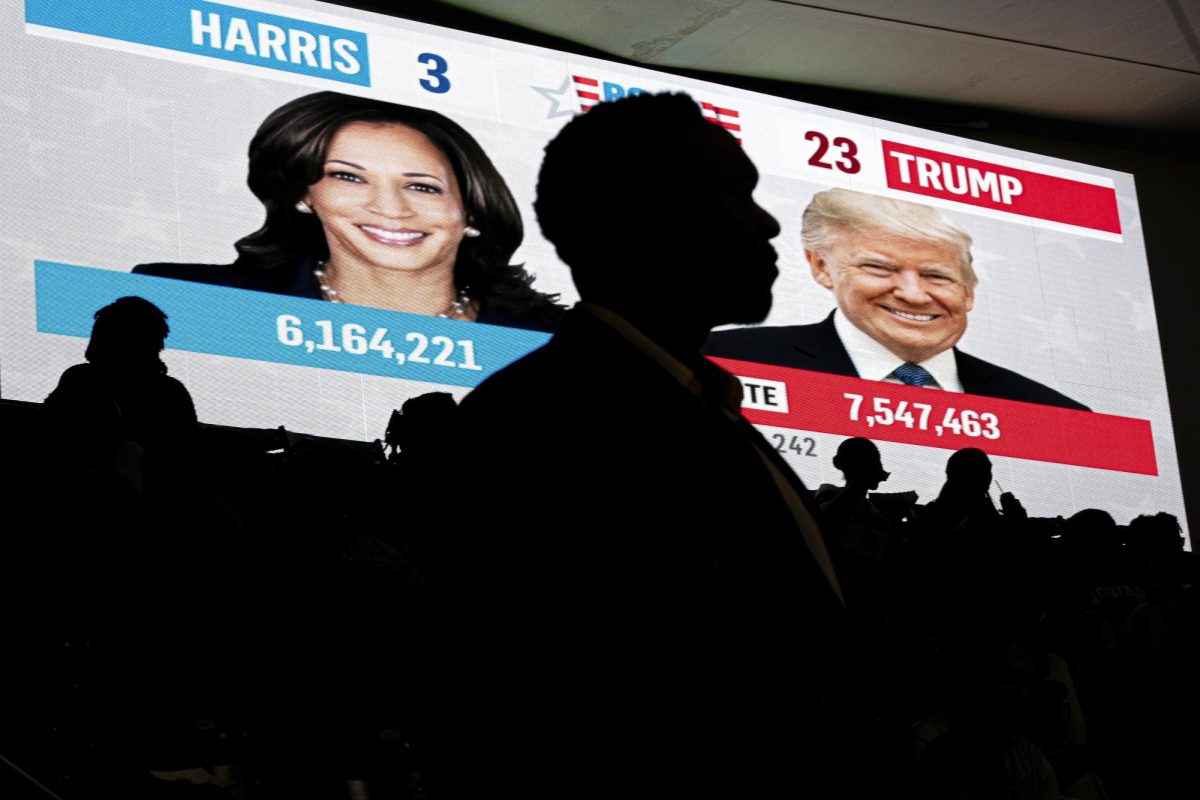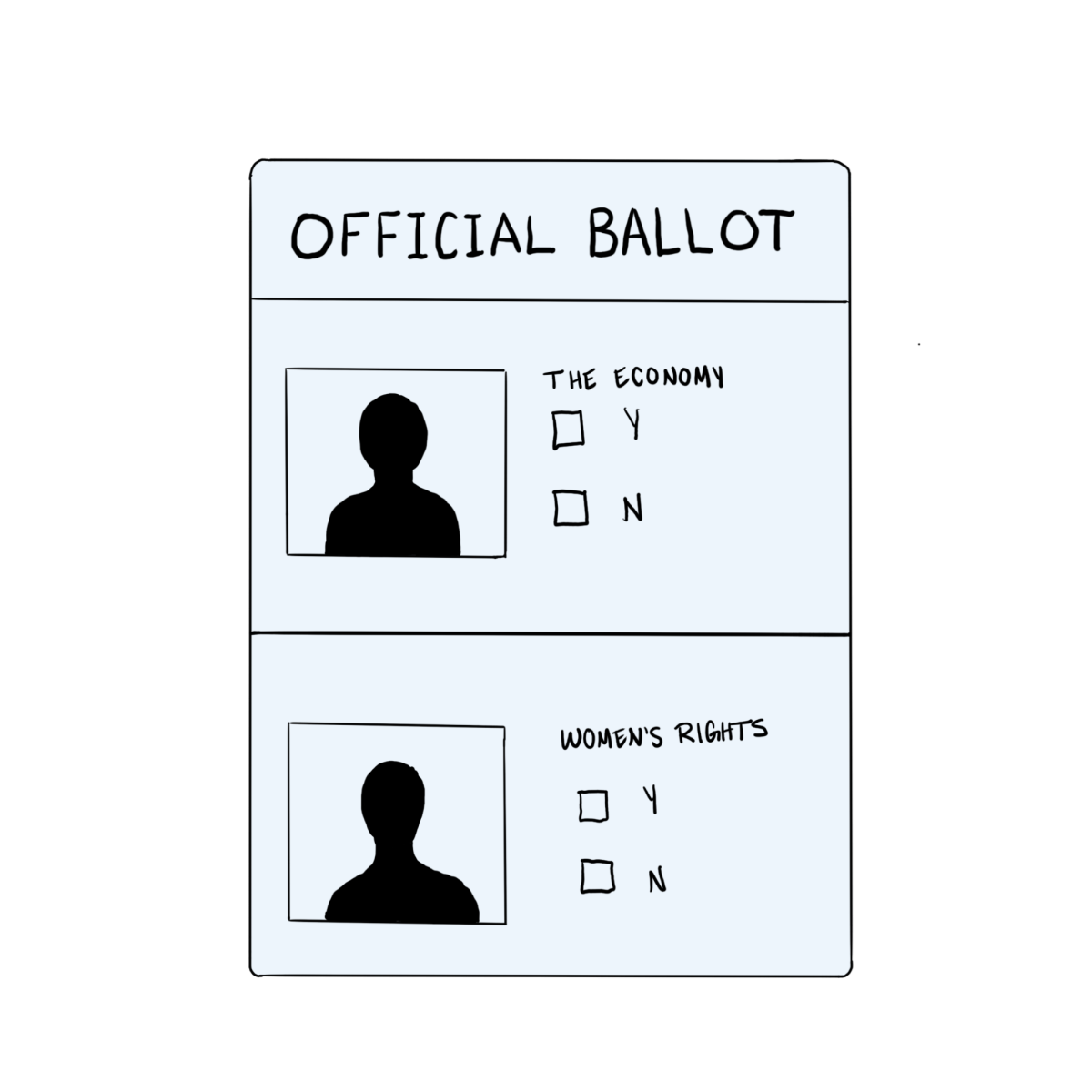If you’re a Democrat, the post-Election Day period has probably been especially hard for you. With Donald Trump winning the presidency and Republicans (most likely, as of Nov. 12) taking a majority in both the House and the Senate, Vice President Kamala Harris’ campaign promises are a thing of the past. Add in the conservative majority on the Supreme Court and Trump appears to have an army of ‘yes men’ waiting to complete his agenda.
I’ll admit that I am scared for the future. There is a looming uncertainty about the state of reproductive healthcare in America, especially as more conservative-leaning states further entrench their restrictive abortion policy. Furthermore, the Department of Education’s future is in the hands of Trump, who has publicly defended the Supreme Court ruling on affirmative action and opposed DEI initiatives. Among other issues like the environment, price gouging and rent prices, I’m certain that the next four years will be a turning point in American history that cements inequalities in our justice system and legislative branch.
While terrified of a Trump presidency, I was never hopeful for a Harris administration. I believe this is a sentiment that most Democrats can relate to. Even though I filled in the bubble next to Harris’ name and dropped my ballot off at the post office, I woke up Wednesday morning more disgusted at the thought of a Trump presidency than upset that Harris had lost.
This dichotomy is indicative of the Democratic Party’s demonstrable failure in this election. Nothing mobilized the Democratic base to go out and vote besides the threat of Trump. I say this as the ideal Harris voter. I’m a college-educated, Black girl in her twenties from New York studying political science. I might as well have “I voted for Harris” written on my forehead.
Still, voting for Harris was more a vote against Trump than anything. Although she checked a lot of boxes for me, several issues with her platform contradicted what I believed to be Democratic Party values.
The biggest contradiction I faced with my vote was Harris’ stance on immigration. It was difficult to decipher where she stood on this issue. Often, her sentiment regarding immigration echoed the nationalist rhetoric many of us were used to hearing on the right. Specifically, the choice to support the bipartisan immigration bill that was tanked by Trump in September, which I believe was beyond a bipartisan attempt to legislate immigration. Rather, to me, it was a pure capitulation to the right on behalf of the Democratic Party.
If anything, the Democrats sold the future of undocumented immigrants for a ‘win.’ A win that even their electorate didn’t want. The bill would severely restrict a person’s right to seek asylum, contradicting a fundamental principle the Democratic Party once stood for. At times she seemed sympathetic to immigrants but ultimately committed to a nationalist perception of the issue.
Another major issue with Harris’ campaign was her stance on Israel and Palestine. Whether you believe that Israel should have unchecked military power to defend itself or you support an immediate ceasefire, it doesn’t take much to understand that she was playing both sides of the issue. Regardless of my own stance on the conflict, I would have liked more clarity on her standpoint. In the same breath, Harris’ policy platform advocates for protecting U.S. allies in Israel and Gaza’s right to dignity. Actively providing the weapons that allow the war to continue does not demonstrate a commitment to dignity, in my opinion. To put it simply, I believe you can’t have it both ways.
If anything, Harris’ loss is a message to the Democratic party, which I think Michigan voters passed along loud and clear. The undecided voters in Michigan should have been an easy win for Harris. They gave President Joe Biden a warning during the primaries by voting ‘uncommitted,’ and it was up to Harris to take that warning seriously. She gave no assurances that the conflict between Israel and Hamas would look any different under her presidency. If Harris wanted to mobilize her base, she should have separated herself from Biden’s presidency and taken a stronger stance on the Middle East conflict. Instead, she aligned herself with the Cheney family, a name well known for their hand in disabilizing the Middle East via the War on Terror. Even her rhetoric was reminiscent of former Vice President Dick Cheney’s pro-war message.
Harris’ failure could serve as an impetus for change in the Democratic Party. At this time, we don’t need moderates who pay lip service to any issue without taking a strong stance. We need a party and candidate with a backbone that won’t buckle under the pressure coming from the right.















